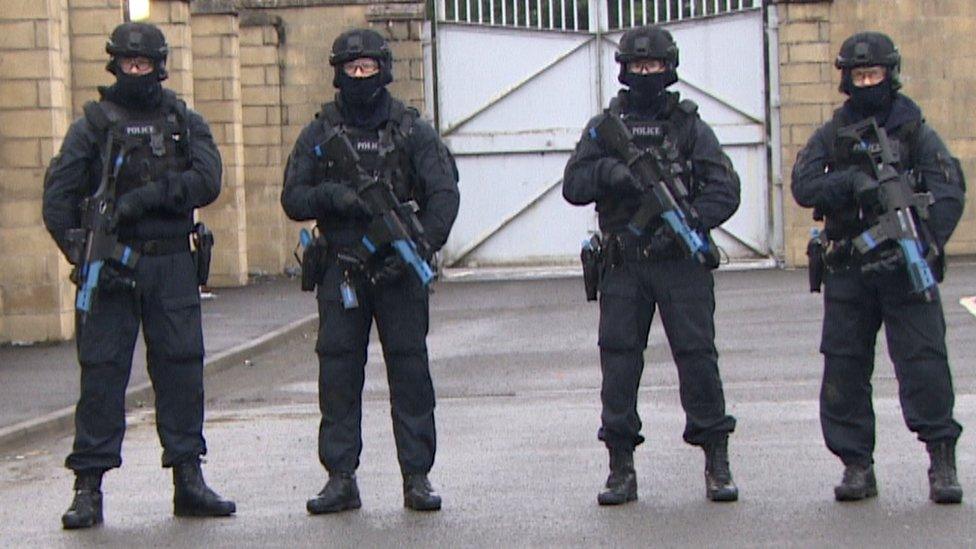COP26: Greta Thunberg mobbed as activists gather in Glasgow
- Published
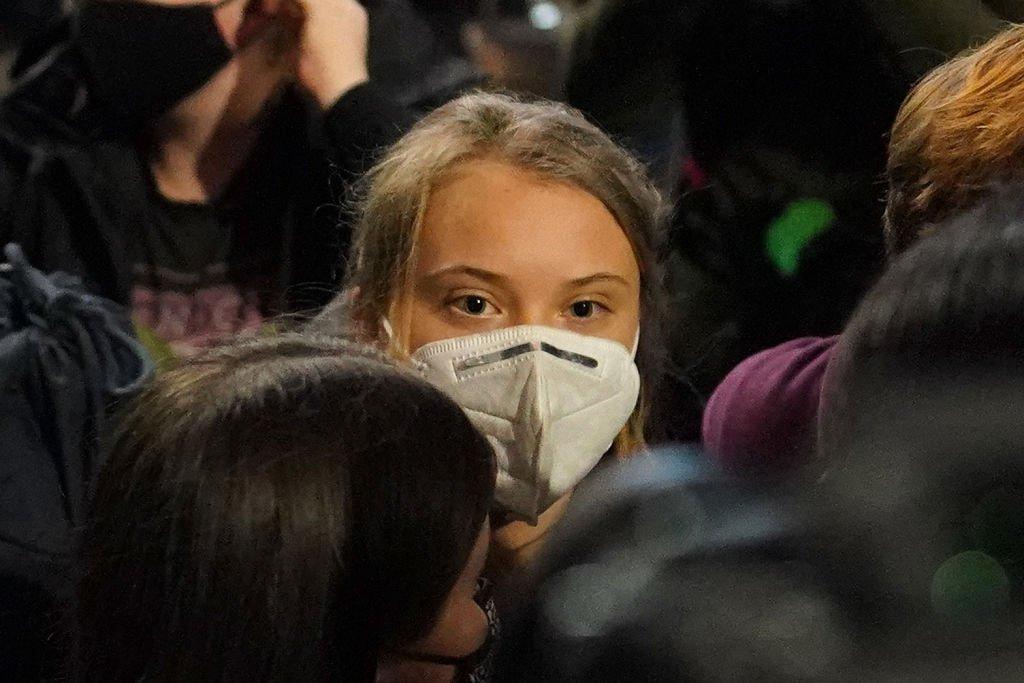
Greta Thunberg arrives at Glasgow's Central station
Thousands of activists arrived in Scotland's largest city to make their climate change concerns known.
They included Greta Thunberg who was mobbed as she arrived by train in Glasgow.
The Swedish activist was surrounded by police, media and activists at the city's Central Station.
Earlier, faith groups making pilgrimages to Glasgow converged in the city as protests build ahead of COP26 which starts on Sunday.
Many had walked thousands of miles to join in a procession through the city centre.
The event was an "opening ceremony" to a series of non-violent protests planned in Glasgow, and around the world, during the United Nations convention.
Ms Thunberg travelled by train from London Euston, carrying a cardboard placard saying Fridays for Future, the name of the youth movement inspired by her school strikes in 2018.
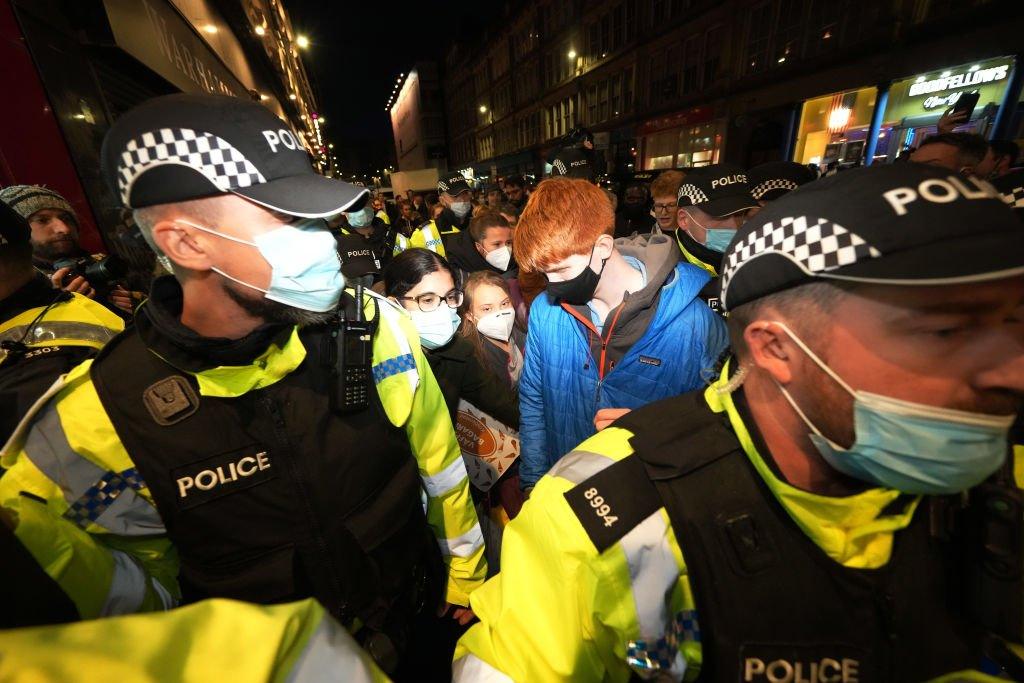
Climate activist Greta Thunberg was mobbed as she arrived in Glasgow
Hundreds of people from Extinction Rebellion (XR) Faith and pilgrimage groups converged at the McLennan Arch on Glasgow Green, where XR Scotland's "Blue Rebels" formed a guard of honour for them.
The bells at St Mary's Episcopal Cathedral in Glasgow led a UK-wide toll from 18:00, offering a traditional warning to humanity to "pay heed to the climate crisis".
Those arriving in the city include Marcha Glasgow, a group of Spanish activists who took a ferry from Bilbao to Portsmouth to embark on a 30-day hike to Glasgow.
Camino to COP26 members have walked from London and Bristol to Glasgow in just under two months.
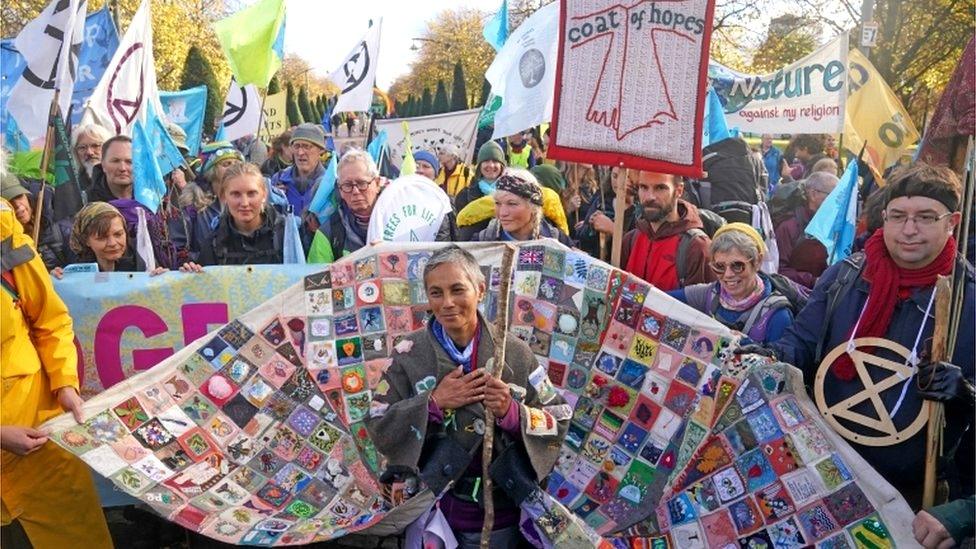
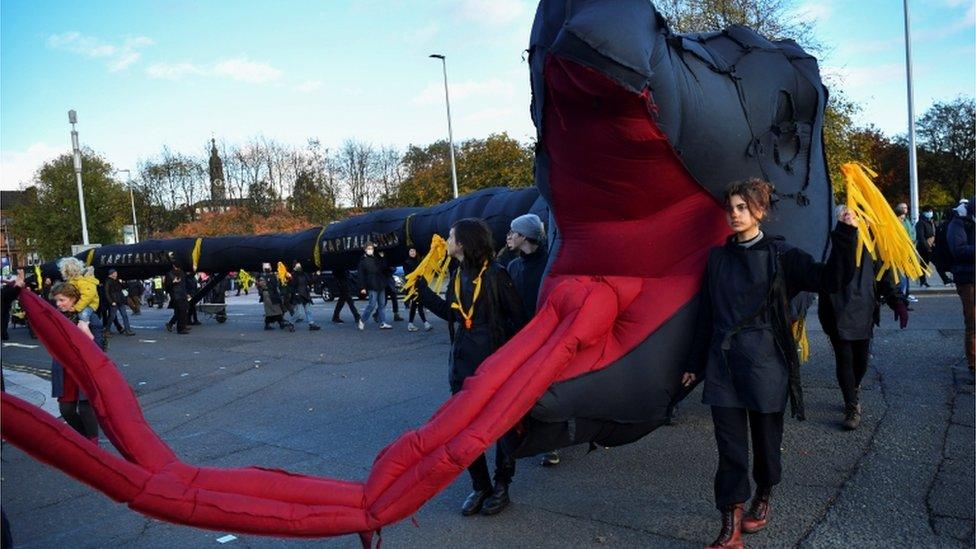
Young Christian Climate Network activists arrived in the city on Saturday after walking 1,200 miles from Cornwall.
Ecumenical Pilgrimage for Climate Justice arrived in Glasgow from Poland, Sweden and Germany and Pilgrimage for COP26 has walked from Dunbar to Glasgow.
Glasgow-based artists Zoe Walker and Neil Bromwich paraded the Serpent of Capitalism, a 30m (100ft) sculptural artwork alongside the pilgrimage groups.
'Spiritual duty of care'
Alex Cochrane, of XR Glasgow, said: "COP26 must end a growing crime against humanity by wealthy governments where the global south are sacrificed to bear the brunt of the global north's affluent, carbon-intensive lifestyles.
"We welcome the pilgrims of faith - and no faith - who are walking to COP26 to demand governments also walk the walk for the global south."
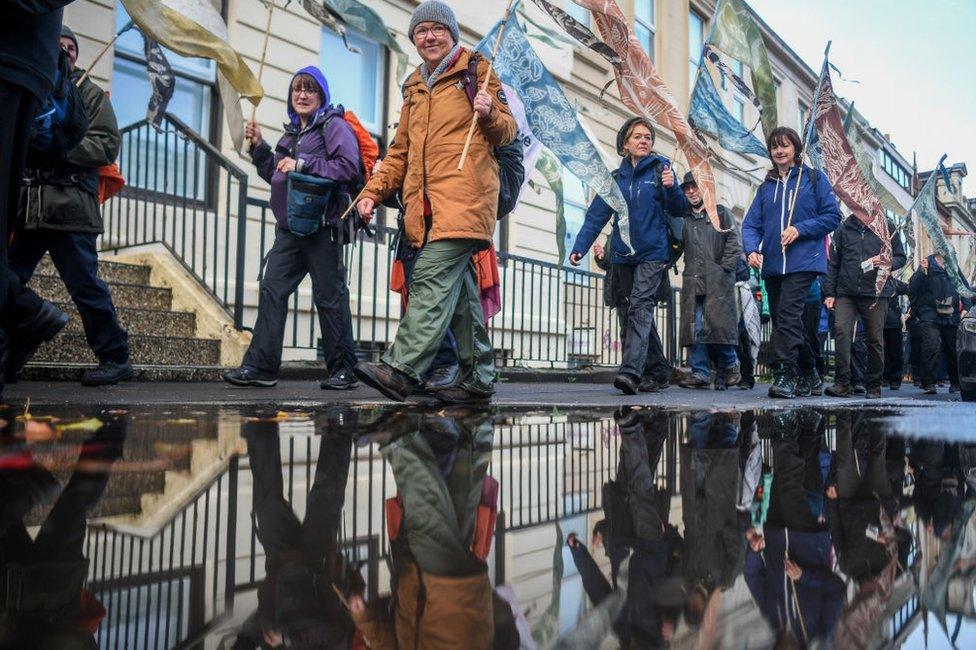
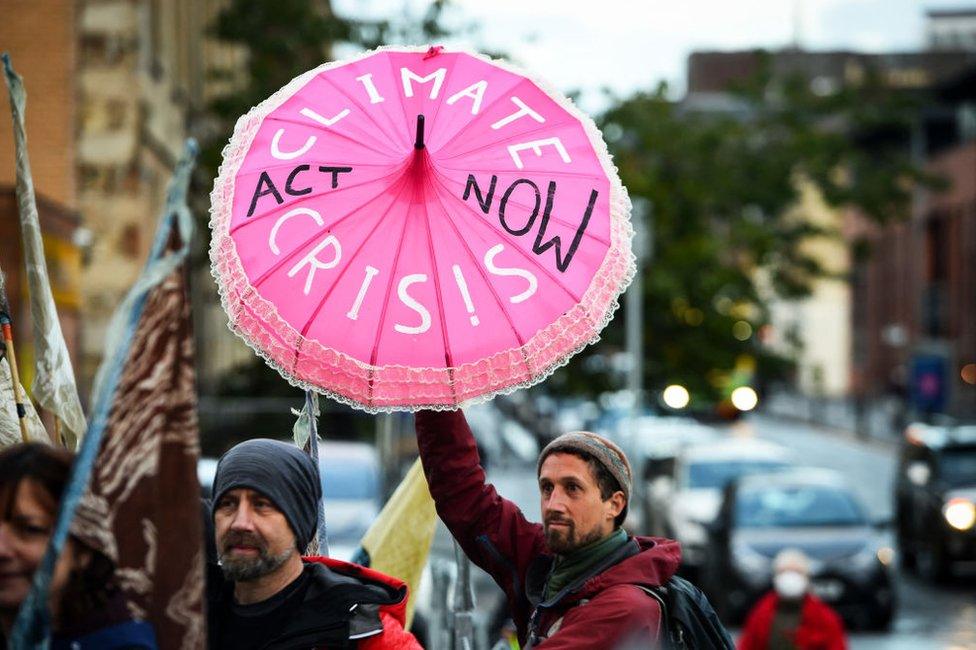
Yaz Ashmawi, of XR Pilgrim, said: "Countries around the world are already suffering the consequences of our historic emissions in the west, and small island states like the Maldives will be submerged by rising seas if no immediate action is taken on the climate.
"As people of faith we have a spiritual duty of care to those who are less fortunate than us, so we have been using this walk to raise money for activists in financially disadvantaged countries that are already impacted, to empower them to join this conversation themselves."
Allow X content?
This article contains content provided by X. We ask for your permission before anything is loaded, as they may be using cookies and other technologies. You may want to read X’s cookie policy, external and privacy policy, external before accepting. To view this content choose ‘accept and continue’.
A group of indigenous leaders from North and South America were welcomed to Glasgow by First Minister Nicola Sturgeon.
She said that although Scotland did not have a place at the negotiating table, the Scottish government would help Minga Indigena get their message heard.
"As representatives of indigenous peoples and the Global South, they have an important message to convey on behalf of those least responsible for the global climate emergency, who are often first and most severely affected by its consequences," Ms Sturgeon said.
Calfin Lafkenche, Mapuche leader from Patagonia, Chile, Minga Indígena said: "We are the guardians of 70% of the world's biodiversity. It is everyone's task to reach an understanding and move to a new paradigm where all humanity protect nature.
"We need to face the greatest challenge in history together."
The group have so far been unable to bring all their representatives to Glasgow because of a shortage of accommodation in the city. Several members have been given accommodation by local people but organisers still hope to get access to a large property where more of them can stay together.
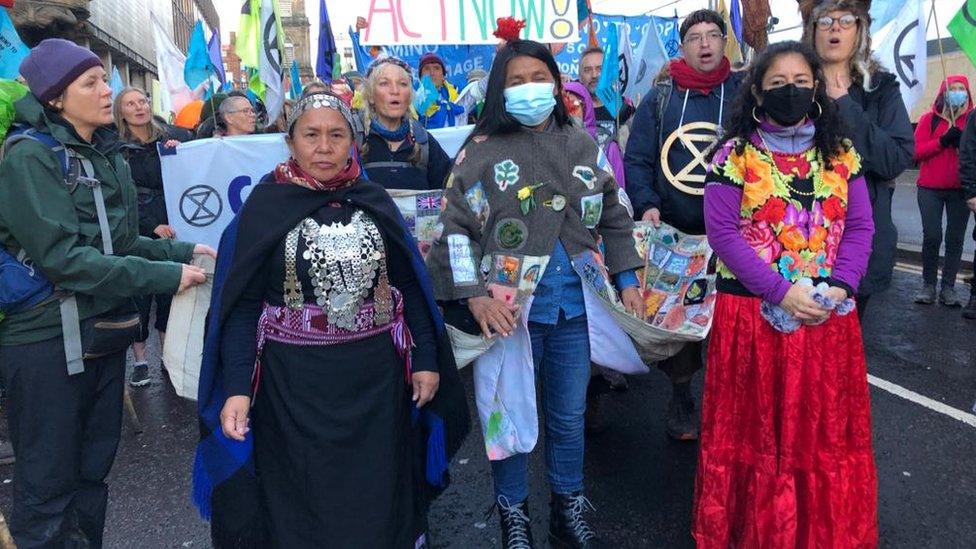
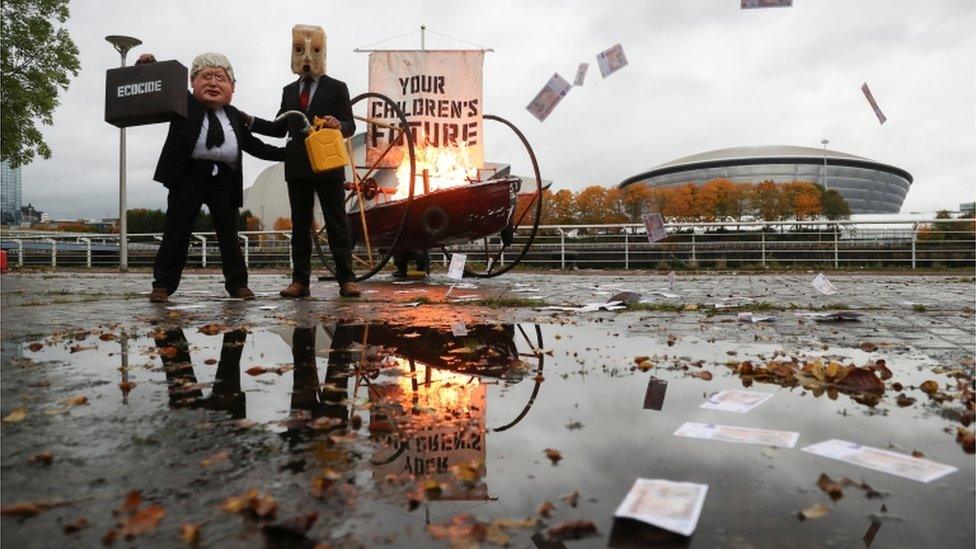
Ocean Rebellion arrived early to stage its "visual performances" ahead of the summit
Over the next two weeks about 30,000 people are expected to attend the climate conference.
Police Scotland Chief Constable Iain Livingstone, Scotland's most senior police officer, previously said his force would respond "swiftly and robustly" to protesters who tried to disrupt the event.
He said the force - together with 7,000 officers from other parts of the UK who have been deployed to Scotland to help police COP26 - was "ready for the challenges that lie ahead".
Dramatic protests from other groups have already begun in other parts of the city.
Sing The Change brought choirs together in George Square to sing an arrangement of Louis Armstrong's What A Wonderful World.
Four XR protesters locked themselves to the Memorial Gates at the University of Glasgow on Friday to demand that the establishment adopt the Green New Deal - a climate strategy developed by students and staff at the university.
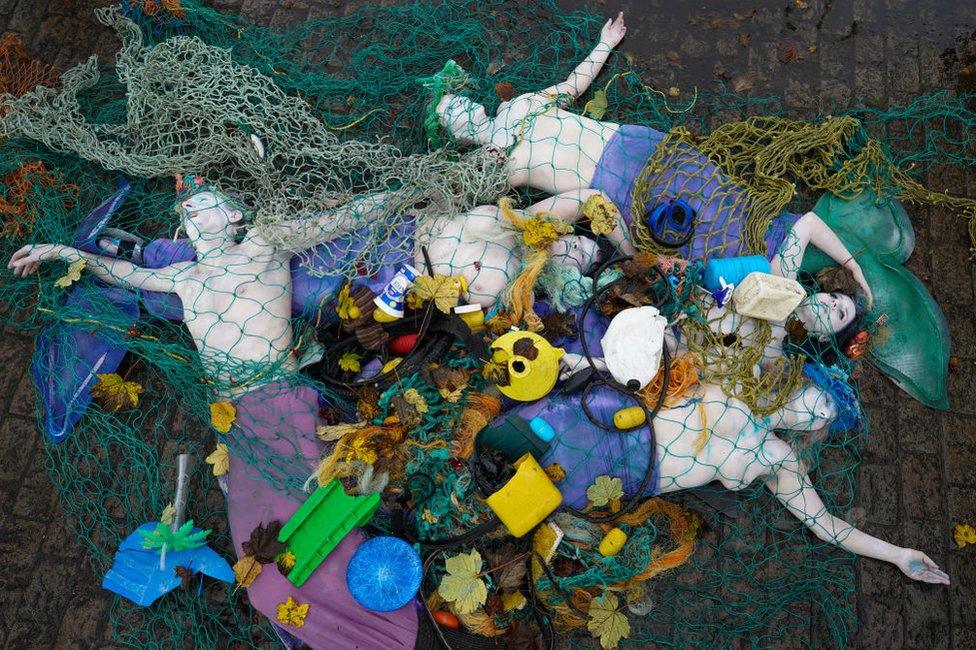
Protestors want to raise awareness about trawling the ocean bed releasing carbon into the atmosphere
Ocean Rebellion activists poured "oil" in front of Glasgow's Cop26 venue in protest ahead of the event.
Andrew Darnton, an Ocean Rebellion activist and climate change researcher, told BBC Radio's Good Morning Scotland programme his group had arrived in Glasgow early to get media coverage before the summit began, and had been warmly welcomed by the people of Glasgow.
They use "striking visual performances", such as setting fire to their boats or pools of dead mermaids, to convey their message about blue carbon - how the seas store carbon.
"We are bringing people news about the state of the seas and the degradation of the oceans and pointing out how important that is in relation to getting any kind of meaningful progress on cutting carbon," Mr Darnton said. "You can't do that without the seas."
He added: "We'd like people simply to understand that you won't fix the climate crisis without attending to the ocean.
"Bottom trawling of the ocean, stirring up the ocean bed, produces more carbon in a year that the whole of aviation, the whole of flying, because the seas lock up so much carbon for us. They provide most of our breathable oxygen."
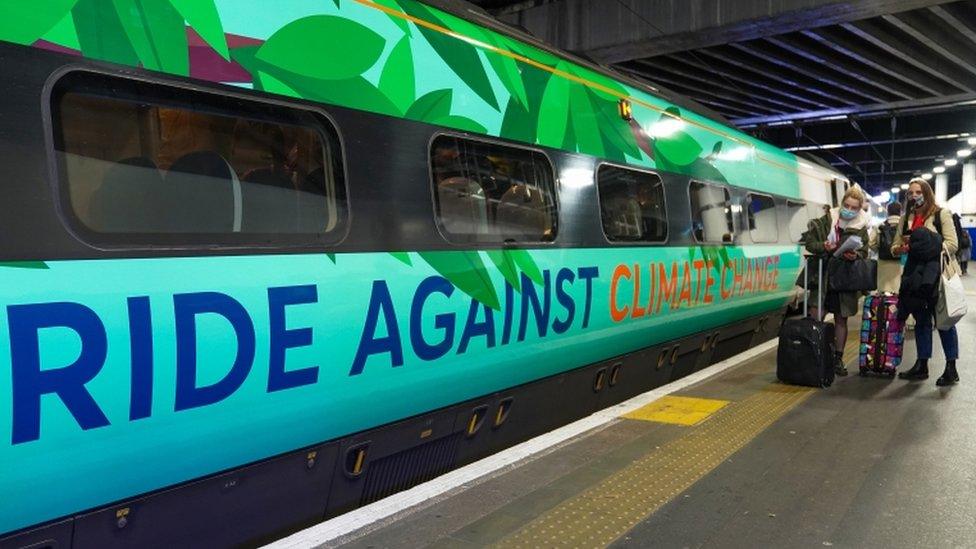
Rail companies worked together to bring young people, politicians and representatives from non-governmental organisations from Europe to Glasgow.
Debates on sustainable travel were held during the journey to London. Passengers then travelled to Glasgow on a Pendolino clad with a new design to celebrate the Climate Train journey.

The COP26 global climate summit in Glasgow in November is seen as crucial if climate change is to be brought under control. Almost 200 countries are being asked for their plans to cut emissions, and it could lead to major changes to our everyday lives.

- Published29 October 2021
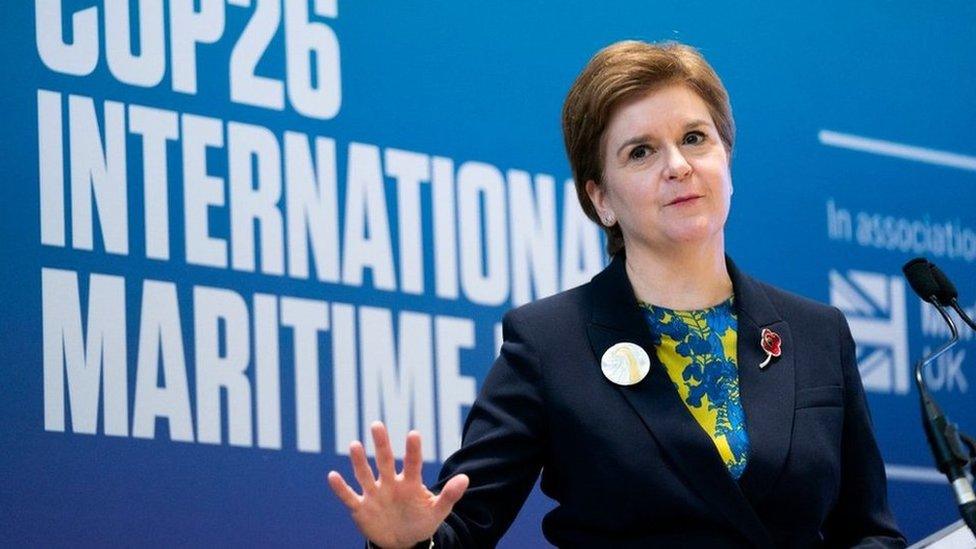
- Published29 October 2021
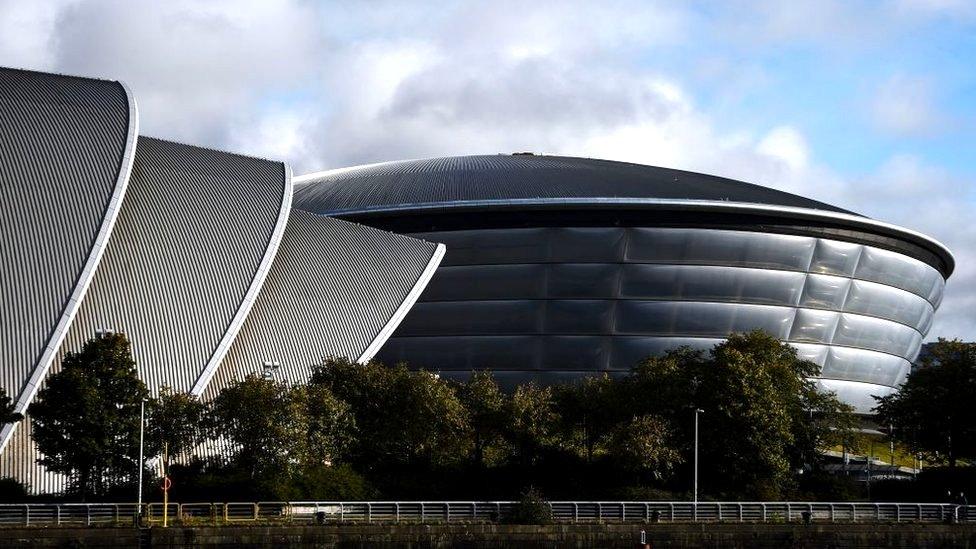
- Published28 October 2021
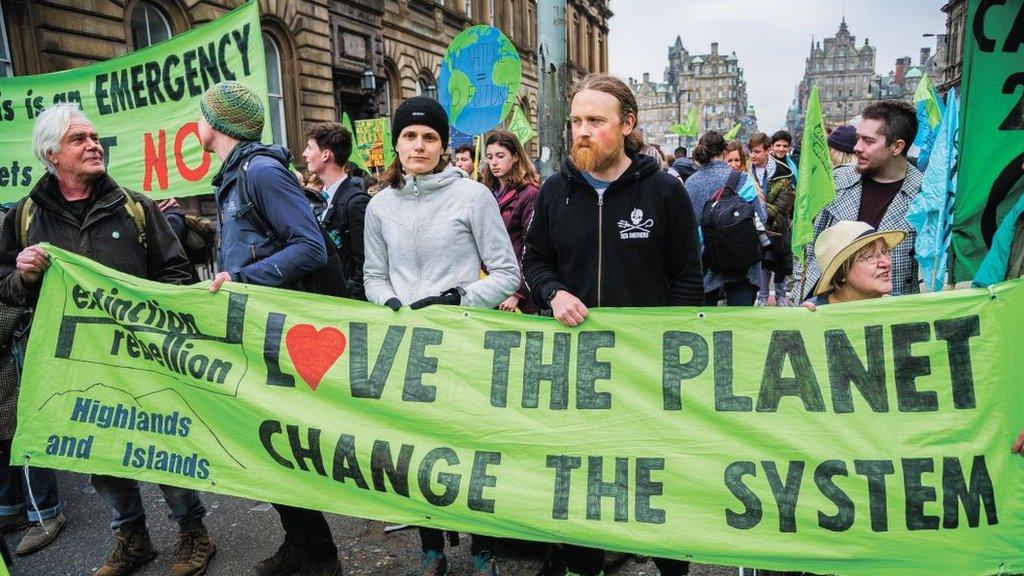
- Published27 October 2021
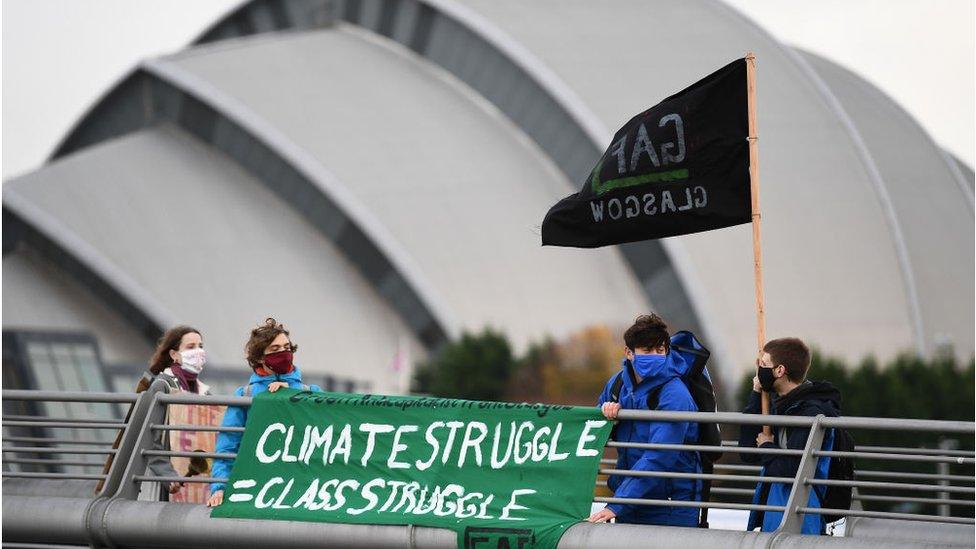
- Published13 September 2021
